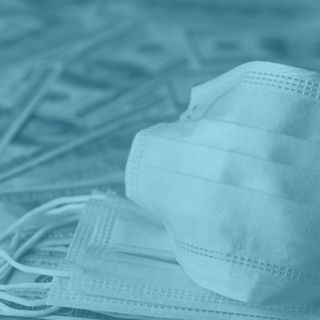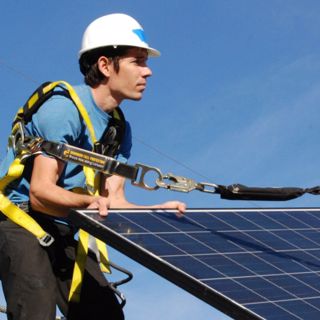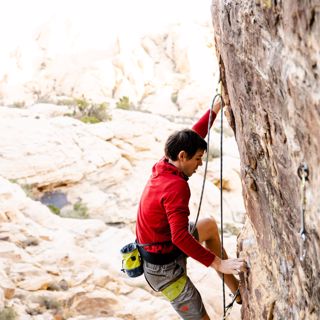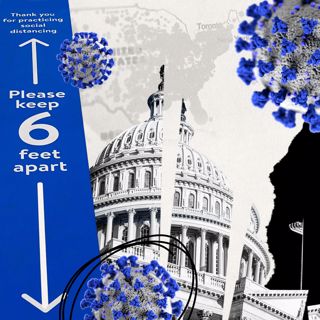
How Transparent Pricing Drives Healthcare Change
Dr. Marty Makary—surgical oncologist at Johns Hopkins University School of Medicine, and health policy and innovation expert—has long been a passionate advocate for transparent pricing in the healthcare system. We don’t talk enough (or really at all) about price in healthcare, says Makary (instead, we talk about cost). But shedding a light on prices in healthcare—from not just what those prices are but how prices are set and the value we all receive as consumers of the system overall—can help us measure quality in medicine, and be a driver for real behavioral change in the healthcare system, correcting many of the unintended consequences of a fee-for-service system like surprise billing or unnecessary medical procedures.In this conversation with a16z General Partner Julie Yoo, Makary and Yoo discuss what price transparency in the healthcare system could really do; how we can "steer" towards the good physicians who are not just highly skilled, but make the right judgment calls based on need and holistic health, not cost; how we might distinguish between high value and low value through medical appropriateness; and how we might gain clinical wisdom from other kinds of scientific discovery beyond randomized controls, especially during the wartime protocol of COVID-19.
15 Juli 202029min

Preserving Digital History: How to Close the Web's 'Memory Hole'
More than 98% of the information on the web is lost within 20 years, and huge gaps exist in our digital and cultural history. Zoran Basich and Alex Pruden of a16z talk to Brewster Kahle and Sam Williams, who are using different approaches to attack this problem. Brewster cofounded the Internet Archive, which is well known for creating the Wayback Machine that crawls a billion URLs every day. Sam cofounded Arweave, a company that uses decentralized crypto networks to store information forever. For both of them, this issue has implications that go far beyond just data storage. It touches on issues of censorship, government manipulation of information, and how historical context is necessary for well-functioning societies. They discuss how decentralized models offer the promise of building a next-generation web that works better for users.
13 Juli 202047min

Alex Honnold on Human Performance (part 2) – Climbing and Entrepreneurship
In part 1 of our series on human performance, we looked at the limits of human potential in climbing and other sports – and how we push those limits through technology and training.In this episode, recorded at our a16z innovation summit last year, Alex talks with a16z general partner and fellow avid climber Peter Levine about the risk, fear, and preparation for his free solo of El Capitan on Yosemite. While climbing is the topic, the conversation holds many lessons for entrepreneurs, and anyone else who is attempting something that’s never been done before – from how to evaluate risk versus reward, moving into the public spotlight from stealth, removing constraints to innovate on established routes, and knowing where you can fall and where you can’t. The conversation finishes with Alex’s life philosophy of living simply and giving back, including how he donates a third of all his income to the Honnold Foundation to support solar projects in underserved communities.
11 Juli 202018min

Alex Honnold on Human Performance (part 1) – Where's the Limit?
Is there a limit to what humans can do? And if so, how do you know when you've reached it? Welcome to part one of a two-part series on human performance with professional rock climber Alex Honnold. Alex redefined the limits of what is possible by free soloing – that is climbing with no ropes or safety gear – a 2000-foot granite rock face in Yosemite, known as El Capitan. That feat was documented in the award-winning film Free Solo. In this podcast, Alex, a16z general partner Peter Levine (who at age 59 is still an avid ice climber), and Das Rush discuss how technology and training have pushed the limits of what's possible and how to manage the mental preparation of any big endeavor, whether its building a company, reaching a new peak, or maintaining peak performance while aging.In Part 2, recorded last year as part of our a16z innovation summit, we share a fireside chat with Peter and Alex about the risk, preparation, and fear around Alex's free solo. Photo credit: Shawn Corrigan
11 Juli 202023min

Why We Shouldn’t Fear AI in Healthcare
"Why We Shouldn’t Fear the ‘Black Box’ of AI (in Healthcare and Everywhere)" by Vijay Pande. First published in the New York Times, January 2018. You can also find and share this article at a16z.com/aidoctor
7 Juli 20206min

When One App Rules Them All: The Case of WeChat and Mobile in China
"When One App Rules Them All: The Case of WeChat and Mobile in China" by Connie Chan. First published August 2015. You can also find and share this essay at a16z.com/mobilefirstchina
7 Juli 202020min

Every Company Is a Fintech Company
"Why Every Company Will Be a Fintech Company -- The Next Era of Financial Services and the 'AWS Phase' for Fintech" by Angela Strange.You can also find and share this essay at a16z.com/fintecheverywhere
7 Juli 202015min

Read-Alouds, Continued
Today we're continuing a series we started a while ago of read-alouds (for more context on the why and why now check out episode #500 on how we podcast!).The first was episode #544 in April, It's Time to Build, read out loud by Marc Andreessen; what follows are three more pieces read out loud by their authors:"Why Every Company Will Become a Fintech Company: The Next Era of Financial Services and the 'AWS Phase' for Fintech" by Angela Strange"When One App Rules Them All: The Case of WeChat and Mobile in China" by Connie Chan, first published August 2015"Why We Shouldn’t Fear the ‘Black Box’ of AI (in Healthcare and Everywhere)" by Vijay Pande, first published in the New York Times January 2018
7 Juli 202051s






















